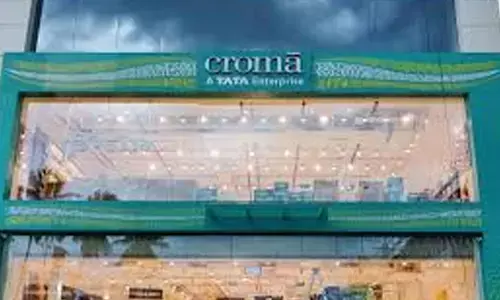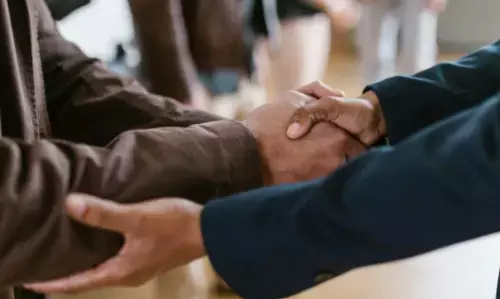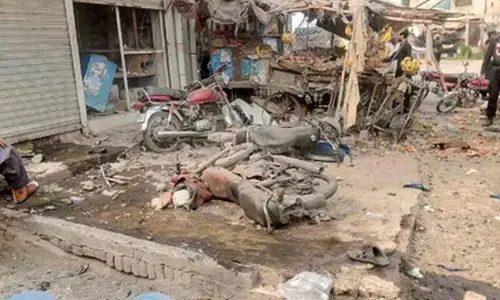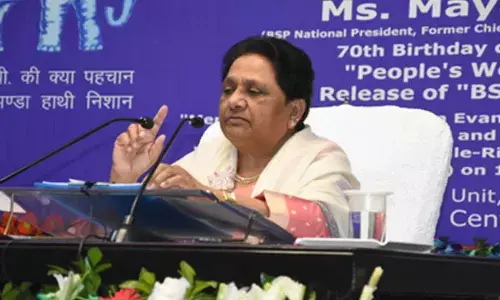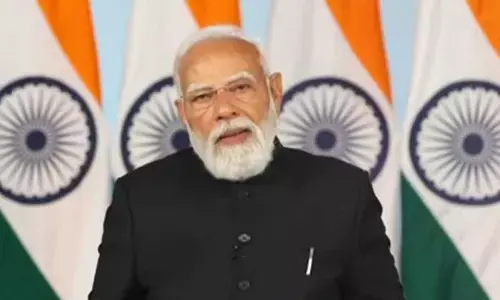Sheroes changing rural women's world
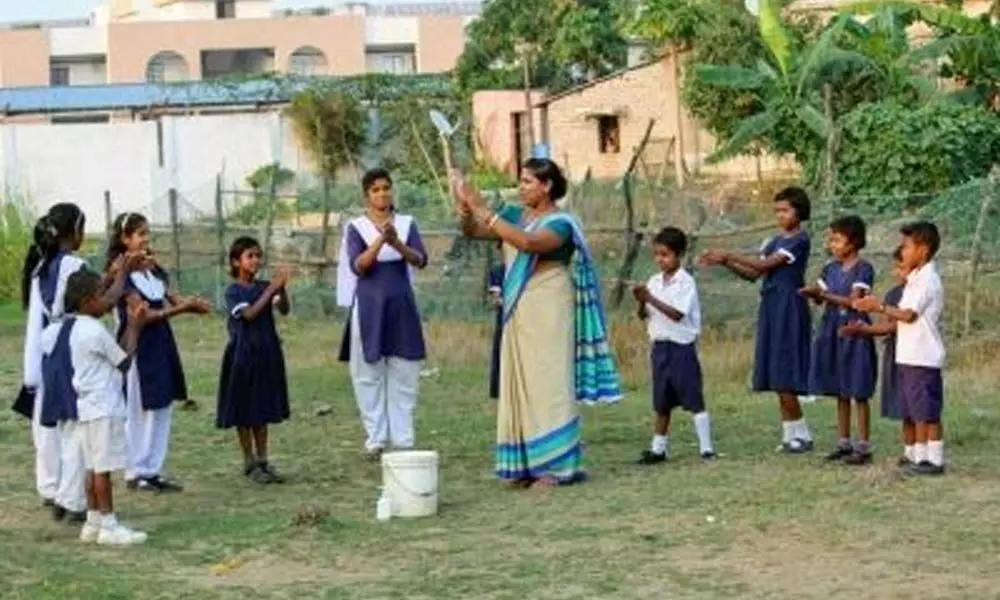
Sheroes changing rural women’s world
Men and women are often differentiated based on "gender role" and the tasks assigned to them.
Men and women are often differentiated based on "gender role" and the tasks assigned to them. The question is who has defined these roles and assigns these tasks? And are they still valid? Are we confining our present potential just to uphold age-old societal constructs? Other biological and anatomical differences aside, both genders have one brain and one heart to function.
Also, if we see the letters 'W' & 'M', both are reverse forms of each other. Today we present some women's stories who have dismissed the so-called gender specific roles and taken the lead to bring a significant change.
Busting superstitions and myths
SS Mousumi, 30, is a changemaker in Chawklapur Village, Haldia, West Bengal.
Belonging to a conservative joint family and being a mother of a four-year-old child, Mousumi's urge to do something for her community was rather repressed.
She kept herself busy at home and was very particular about cultivating the right eating habits, personal hygiene and childcare practices. Her family maintained good health, but things were different outside.
She could observe many pregnant women falling prey to superstitions. Due to age-old beliefs, pregnant women were prohibited from consuming dairy, certain fruits, vegetables, oil. It is also difficult to convince them to opt for institutional delivery and immunization.
On becoming a 'SuPoshan Sangini', she was determined to bridge the knowledge gap. Initially, she struggled with the Antenatal Care registrations, caseload of malnourished children (13 SAM and 21 MAM), reluctance towards consumption of IFA tablets and much more.
She kept demonstrating the benefits of all the right practices through multiple aids, discussion, and cooking demonstrations. She visits 10-12 houses daily and engages the men too through family counselling. This has built up the capacities of women and a trend towards behaviour change.
As per data source from VHSNDs, pregnancy registrations are 100 per cent, 0 per cent Severe acute malnourished children and only 4 per cent Moderate acute malnourished children, out of 125 children in the village.
From dependent to dependable
SS Chandra Prabha Ahirwar is a changemaker in Mohangiri slum, Vidisha, Madhya Pradesh. In a small town like Vidisha where women are not allowed to work, Adani Foundation trained ten women to become SuPoshan Sangini. Chandraprabha Ahirwar is one of them.
Before joining the project, she was better known as 'Bahu' of her area. She always had health issues, that kept her dependent on in-law's pension for medical expenses.
To add to their woes, her husband was unemployed for most of the year. On meeting two Sanginis, she was motivated to step out and earn for herself. On getting trained as a Sangini, she took charge of her health first.
Now there was no looking back. In the past two years, she has conducted baseline survey of 896 households, universal anthropometry of 265 children and HB Screening of 890 adolescent girls.
She confidently supports ICDS workers and spreads awareness on importance of good nutritional status. She ensures maximum participation of beneficiaries at the village level events and her efforts are well appreciated by the ICDS staff. Chandraprabha transformed from being a hesitant person to a people's person.
No Age for Education
SS Mamina Pradhan, 34 is a changemaker in Rabindra Nagar village, Dosinga GP, Odisha. It was a sad moment when Mamina's husband left her with the younger son and forcibly took the elder one to another village. While going through what she believed was a "cursed" life for more than 2 years, something changed upon seeing a Sangini's presence in her vicinity. Her brother persuaded her to join project SuPoshan - after all, she was a matriculate - she hesitantly gave in. However, Mamina was skeptical about getting acceptance of the village community.
With monthly SuPoshan trainings and subsequent activities, she earned a new identity. She went back to studying - she cleared class 12th exams and then through a distance education program, she became a graduate. She did this alongside her duties as a Sangini.
This further motivated her to do a pathology training course in 2021. Today she is working in the pathology laboratory of her own village while supervising her son's schooling. She knows that education holds the key to independence and is setting a strong example in her community, especially for young girls.
A change within to bring change around
SS Sanju Devi, 35 is a changemaker in Varanasi, Uttar Pradesh. Sanju's dream was to become a teacher or trainer, but she was married off at 17 years of age, soon after finishing class 12th. Her life now revolved around family responsibilities and there was chance of studying any further.
She gave birth to two children in consecutive years. In an ugly turn of events, her husband, who was alcoholic and unemployed for most time of the year, threw her out of the family.
She took shelter at her maternal home but realized soon that she needed to find work. Around the same time, she got the opportunity to become a Suposhan Sangini.
The field exposure and learnings added abundant confidence to her personality, enough to motivate other young women who were struggling with similar issues. She actively participated in trainings on public health, nutrition and childcare.
Seeing her determination and progress, her husband got motivated to find employment. Being the decision maker of her family, she is integrating education, healthy food and a better standard of living. With her learnings and experience as part of the SuPoshan project, she has recently been appointed as an ASHA worker, and feels like she is living her dream.
Going above and beyond
SS Sampa Ghorai Das, 30 is a changemaker in Kismat Shivram Nagar, Haldia, West Bengal. Sampa took an initiative to stir the conversation about menstrual hygiene for adolescent girls, addressing the socio-cultural constraints around it. After a few focussed group discussions, she realized that counselling was not going to be enough.
There were several social determinants causing poor menstrual hygiene practices, one of them being unavailability of sanitary napkins in the local shop. Sampa decided to arrange for a stock of sanitary napkins at her home as a personal initiative.
Now without any hesitation, the girls could approach her to buy sanitary napkins. The Sangini acted as a facilitator, going beyond her stipulated duties, and without any monetary benefit. As of now, 230 adolescent girls in the village are using sanitary napkins. This has also created a safe space for talking about various menstrual hygiene related issues.
Dietary Adequacy at Doorstep
SS Hemlata Bairagi, 46, a changemaker in Gudha and Bishan Pura, Bundi, Rajasthan.
On becoming a SuPoshan Sangini, life took a complete turn for Hemlata. After being indoors for many years, stepping out was difficult due to domestic pressures. But there were eight people to be fed in the family and somebody had to step out. Her village was divided in four Faliyasa and she was assigned the farthest one - the one which was often left unattended even by the Aanganwadi worker.
With her routine of household survey, screening of children, family counselling and other project activities, she supported the Anganwadi worker in terms of updating data and identifying children requiring attention. As the project promotes growing a Poshan vatika, she first developed one at her house.
She grew all seasonal vegetables, herbs & fruits. Seeing the produce, she was excited to incorporate all that into her cooking using her three years of training. She started a movement of sorts in that faliya.
All women were encouraged to grow vegetables at the open backyard. Within months the barren, unused land was prepared for cultivation. Household dietary diversity improved as Hemlata demonstrated nutritious recipes, especially at the households of pregnant women and adolescent girls.
The empowered as an empowerer
SS Suchitra Majhi, 28, is a changemaker in Baincha and Dhanakuta villages in Karanjmal, Bhadrak district, Odisha. The family of Suchitra, a SuPoshan Sangini snice three years, had to bear many losses in their farming activities due to climatic disturbances. Feed six people was very challenging and so, she expressed interest towards other CSR activities of the Adani Foundation.
Under the aegis of Foundation's Sustainable Livelihood Development initiatives and Odisha Livelihood Mission, she motivated 80 village women to create a Producer's Group for Mushroom farming and snack making. This group was trained, and this marked the beginning of self-reliance. These women could earn up to INR 3,000 to 4,000 per month.
Suchitra was instrumental in dealing with the resistance the women faced from their own family. She actively works towards village development work and is an example for many other women to push their boundaries with faith in one's own abilities. According to village PRI members and many village women, Suchitra is the first contact person at her village when any problem or crisis occurs. It is no wonder that she is known as the "Super Sangini" of the village.
(Kavita Sardana is Advisor - Health & Nutrition at Adani Foundation)


